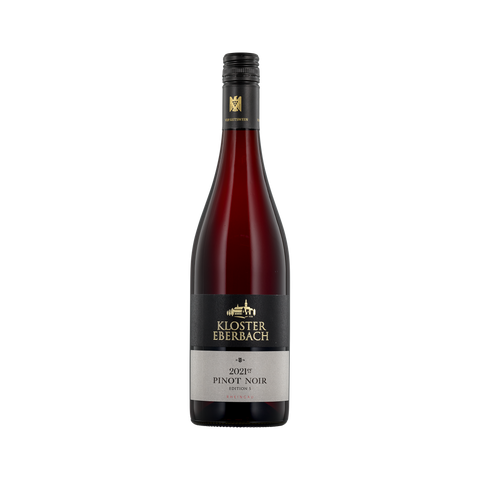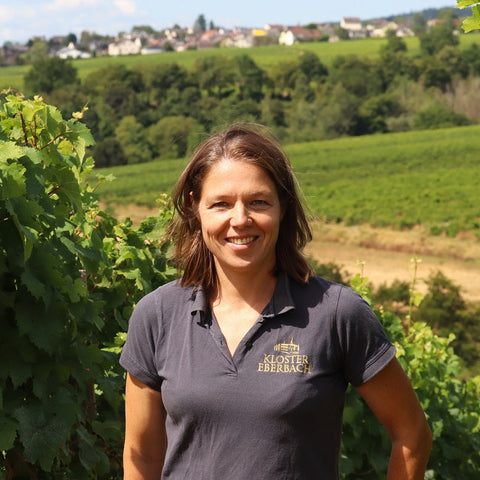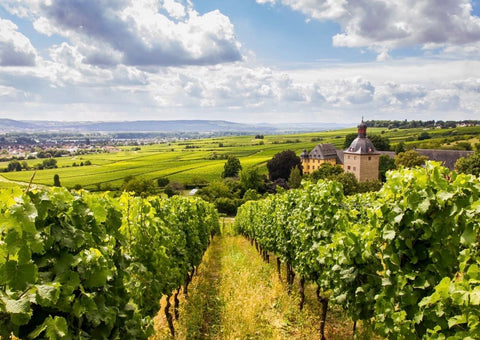
2021 Kloster Eberbach Pinot Noir Gutswein VDP Rheingau
Kloster EberbachTasting Notes: A refined and elegant Pinot Noir, offering aromas of red berries such as cherry and raspberry, complemented by earthy notes and a touch of spice. The wine is light-bodied with silky tannins and a smooth finish.
Final Blend: Pinot Noir
Composition: 100% Pinot Noir
Pair with: Duck Breast, Mushroom Risotto, Soft Cheeses like Brie
Hold Time: Drink Now
Alcohol by Volume: 12.5%
Acclaim: Member Favorite
Cheers to another unique wine club find!
Flavor Profile

Body

Fruit Intensity

Oak Intensity

Acidity

Tannin

Kathrin Puff
Is the esteemed head winemaker at Kloster Eberbach, bringing extensive expertise in fermentation technology and beverage production to the role. Her professional background encompasses the production of both alcoholic and non-alcoholic beverages, with a strong emphasis on product innovation. Kathrin's comprehensive understanding of beverage technology and ready-to-drink (RTD) products positions her as a leading expert in the field. At Kloster Eberbach, she applies her profound knowledge and innovative approach to uphold and enhance the winery's longstanding tradition of producing high-quality wines that reflect the unique terroir of the Rheingau region.

Rheingau, Germany
The Rheingau is one of Germany's most distinguished wine regions, renowned for its rich viticultural heritage and exceptional Riesling wines. Geographically, the Rheingau is unique; near Wiesbaden, the Rhine River deviates from its northward course, flowing westward for about 30 kilometers before resuming its northerly direction. This deviation creates south-facing slopes that are ideal for viticulture, as they receive ample sunlight and are sheltered by the Taunus mountains to the north. The region's soils vary from loess and loam in the lower areas to quartzite and slate in the steeper vineyards, contributing to the distinctive minerality and complexity of Rheingau wines. The climate is characterized by mild winters and warm summers, with the Rhine River acting as a heat reservoir, further moderating temperatures and reducing the risk of frost. This favorable climate, combined with diverse soils, allows for the cultivation of high-quality Riesling grapes, which account for approximately 80% of the region's vineyard area. The remaining vineyards primarily grow Spätburgunder (Pinot Noir), especially in areas like Assmannshausen, known for producing some of Germany's finest red wines.

